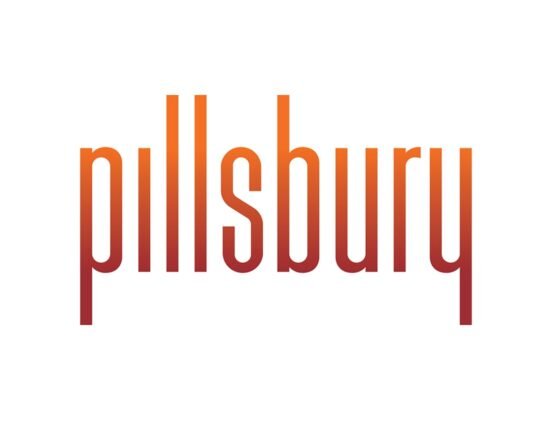India has lately become the centre of attraction for global giants looking to break through into the great Asia retail puzzle and make a buck from the emerging economic powerhouse.
With international retail chains making a beeline for India, the country’s local retailers are bracing themselves for competition as the global giants have deep pockets and resources at their disposal. So, how are India‘s mom-and-pop stores preparing for this showdown? The answer lies in technology.
Once considered a good-to-have tool to maintain a competitive edge in the market, technology has now become an essential mandate for businesses to thrive, and even survive, in today’s cut-throat retail ecosystem. With this shift in interests and consumer preferences, local retailers are not shying away from adopting technology to take on these global players.
Be it tracking finances, upgrading payment methods, or improving the experience of their shoppers, Indian retailers are embracing modern solutions at scale. However, adoption of inventory management tools is one area where there is a lot of scope for improvement.
According to a report from Grand View Research, the global market for advanced inventory management solutions was estimated to be at around $3.43 Bn in 2024 and expected to grow at a CAGR of 6.7% from 2024 to 2030. But in India, local retailers generally rely on old static models, which means maintaining large stockpiles. This results in overstocking and excess inventory.
Being one of the largest consumer markets in the world, India has its unique set of challenges. Coming up with a solution to India-centric problems isn’t the easiest task. However, Unesync, an end-to-end accounting platform for SMEs, might have an answer to these challenges.
Unesync is developing Retail IQ, a smart inventory management solution that allows retailers to get access to real-time insights into inventory levels, sales performance, and shelf dynamics. Using this data, store owners can anticipate trends and optimise their strategies.
Despite sounding like any fancy business jargon, these metrics play a crucial role in modern retail operations and can be a dealbreaker in a highly competitive market.
According to Unesync cofounder Ujjwal Agarwal, Retail IQ shall enable retailers to assess future demand and restock their inventories accordingly.
“Traditional inventory management focuses on tracking stock levels and order quantities, but Retail IQ adds an extra layer of insight by analysing SKU trends over time. This enables retailers to make decisions that not only address immediate stock levels but also anticipate future demand, optimise restocking strategies and adjust marketing efforts accordingly,” Agarwal said.
In India’s retail market, especially for small and medium-sized retailers, the demand for modern SaaS solutions is projected to grow as businesses optimise their supply chains, start focussing on smart inventory management, and track sales performances.
And Unesync’s Retail IQ is looking to capitalise on this growing demand by offering retailers advanced insights into trends, so that they don’t have to rely purely on intuition or outdated reports.
Definable Metrics To Realign Retail Strategy
Today, data has become an indispensable part of every business, empowering them to build targeted strategies and define new goals. However, most of the data used by local businesses often comes from external channels, such as seasonal trends, economic conditions, or public holidays.
But, with Retail IQ’s inventory management solution, retailers can gain insights into internal operations through definable metrics of their own warehouses.
Retail IQ shall offer data-driven insights into stock levels, SKU-level trends, and product placements that enable retailers to make informed decisions. Refined and verifiable data can simplify operations, cut down operational costs, avoid overstocking, and eventually improve the overall customer experience.
Another crucial metric that Retail IQ is designed for is the optimisation of shelf space in stores, which ensures that high-performing products are placed strategically, such as in eye-level racks or in high-traffic areas. This increases the visibility of hero products and unlocks the maximum possible sales.
“As the retail landscape continues to evolve, data-driven decision-making will be at the core of business strategies, and Retail IQ positions retailers to take full advantage of this trend,” said Agarwal.
By handing over the control of store operations analytics to their clients, Retail IQ shall bring them shoulder-to-shoulder with industry giants in terms of tech capabilities.
On the other hand, for the end customers, Unesync’s new offering shall unlock a more seamless and satisfying shopping experience as they get exactly what they want with minimal effort in a retail outlet. The retailers not only build a reputation and stronger relationships with their customers but also foster lasting loyalty.
Sales Insights Backed By Predictive Analytics & Smart Visualisation
Retail IQ is packed with smart predictive analysis tools that empower retailers to analyse their operations through digestible charts, offering them actionable insights and assistance in strategising their next step.
The tech stack used by Retail IQ allows retailers to access their personalised SKU trends and understand how the inventory is depleting for selected SKUs over time.
With this historical data put in the form of charts and easy-to-understand figures, retailers can work out their restocking needs and plan better for faster replenishment of emptying shelves. Unesync’s new tool also assists retailers with promotional tactics for slower-moving goods, helping them clear old stock.
With Retail IQ, store owners will also gain access to brand-specific insights that can help them decode which brands are selling better. On the other hand, if a retailer wants certain brands to sell more, the tool gives them actionable insights on how the visibility and overall sales appeal of specific products can be boosted.
One of the core features of Retail IQ is monitoring and comparison of products and their sales based on their shelf placements. The items shelved in the most visible and high-traffic area of the store are likely to catch more eyes and consequently make more sales.
Retailers also use methods such as clustering and keeping complimentary products together for better sales, and Retail IQ can assist them in optimising this shelf placement area. It can also make recommendations for rotating the placement of slow-moving goods to better positions.
Retail IQ shall also empower retailers to identify the shelves in the stores that are the hotbeds for sales. It does this by visualising the data and making recommendations to suggest different layouts to maximise this shelf space.
Being an inventory management solution, Retail IQ shall enable retailers to keep a close eye on their inventory in the form of a donut chart that showcases stock availability for a particular product. Key challenges like overstocking, wastage of products, understocking, and missed sales are addressed effectively on Retail IQ’s dashboard as it makes recommendations on ideal stock levels that should be maintained.
The platform’s stock alert features shall notify the client about the depleting inventory and list the items that need to be replenished within the stipulated time.
Apart from these features, Retail IQ can also help the client understand which products are contributing most to the store’s sales and compare the sales trends across store locations to identify the best performers.
Future Of Retail SaaS Solutions
As more and more Indian retailers fully leverage SaaS solutions to streamline their operations, the use cases of Unesync’s Retail IQ will not only sound more viable but also become a necessity in running effective retail outlets.
The Indian retail market is set to grow hand in hand with the rising consumer demand and the SaaS market, which is expected to cross the $50 Bn mark by 2030.
Retail IQ’s aim is clear – it wants to leverage this market’s potential as it changes the way retailers deal with inventory management and core retail operations.
“Within the next 3-5 years, we believe that Retail IQ can revolutionise the way retailers approach inventory management, store layouts, and sales predictions. We at Unesync are building solutions that are insightful, accurate, and data-driven, and Retail IQ is an attempt to offer the same to our customers who require new-gen inventory management solutions,” said Agarwal.
Given the potential growth of the segment, Unesync has timed its entry perfectly into inventory management SaaS solutions with Retail IQ. The platform is in the position to not only harness the growth but also empower thousands of retailers who still rely on traditional methods to manage their products.
The idea of changing the way Indian retailers manage their inventories might come off as ‘too grand’, but with efficient technology, the shift can result in more sustainable retail practices and much better customer experiences.







